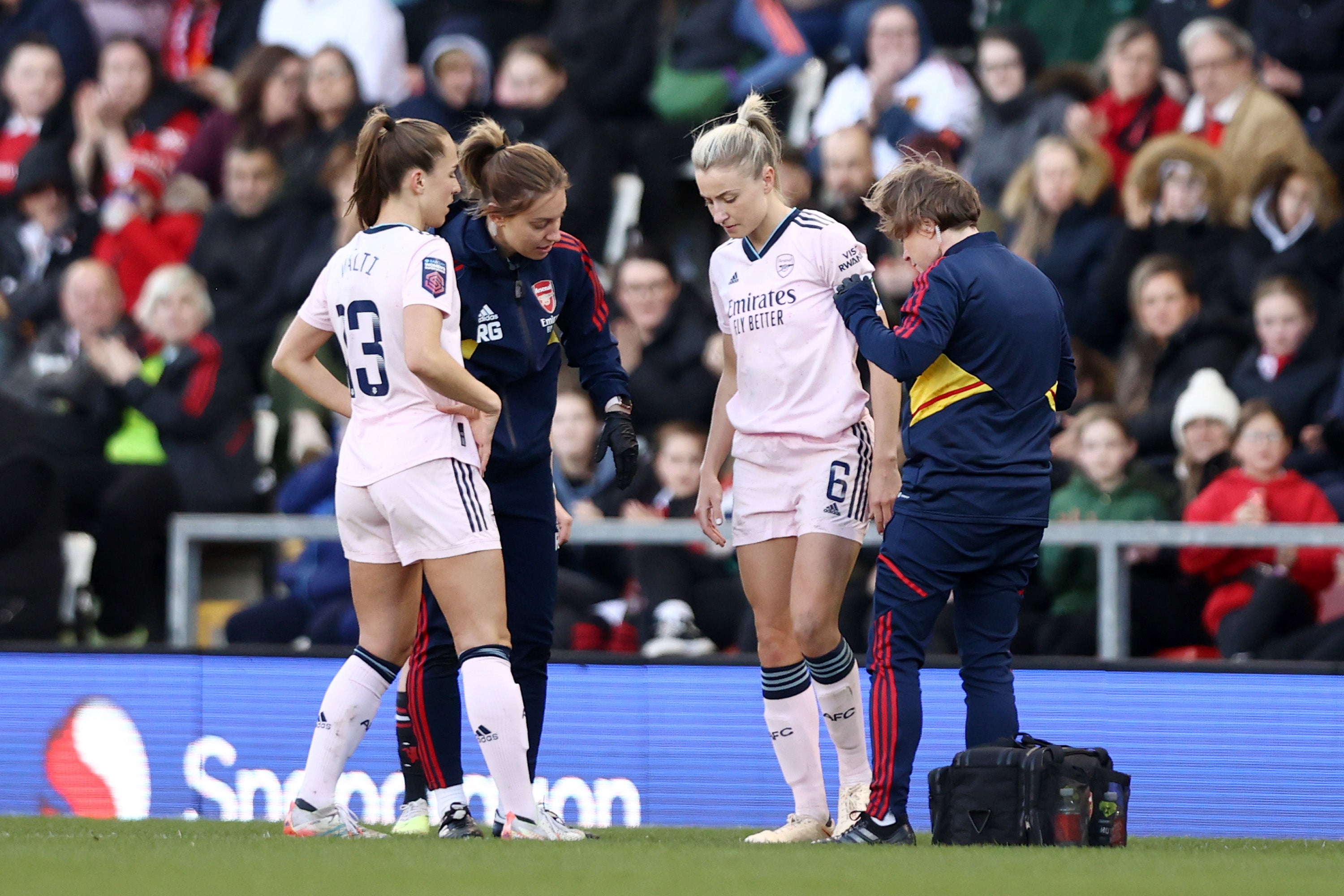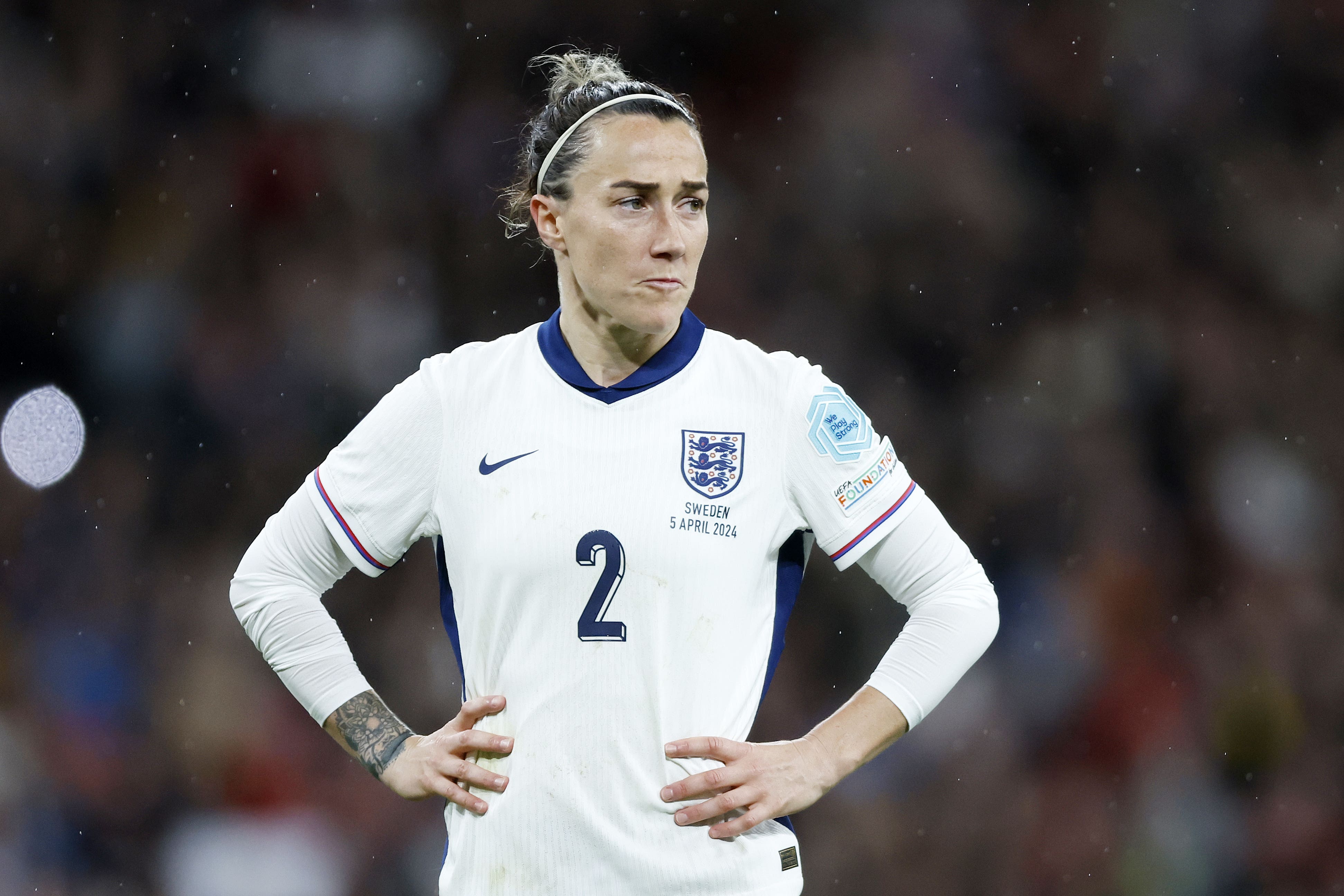WSL clubs to be studied in three-year research into ACL injury crisis
England stars Beth Mead and Leah Williamson have suffered anterior cruciate ligament injuries

England defender Lucy Bronze has welcomed a groundbreaking new study that aims to understand the widespread occurrence of anterior cruciate ligament injuries in professional women’s football.
Project ACL is a joint initiative by FIFPro, Leeds Beckett University, the Professional Footballers’ Association and Nike, who are all providing expertise and funding.
Some reports have suggested ACL injuries are two to six times more likely to occur in women than men, with only six per cent of scientific literature devoted to female athletes, despite some of the game’s top talents like Beth Mead, Leah Williamson, Sam Kerr and Vivianne Miedema missing significant recent spells with the problem.
The partners hope their three-year project, focused on players in England’s Women’s Super League, will result in findings around best practice that can be implemented worldwide, while there are also ambitions to use the WSL as a pilot and eventually expand research to other leagues.
Bronze said: “It’s really important. We need to start fine-tuning the information that we’re putting out. There’s just so much talk and lot of wrong information that gets put out.
“There isn’t a quick fix to eradicating ACL injuries in women’s football. We need to do this finely-tuned research so that we can (pinpoint) the key factors and focus points. The players need to be more clear on the process of why it happens, what you can do to reduce the risk and not just changing your football boots or what socks you wear.
“It’s important the right information is being put out there, both for players and their support system, clubs, and for the game in general.”

Fern Whelan, an ex-Brighton defender who is now the equality, diversity, and inclusion women’s football executive at the PFA, said: “It’s really a concern (for players) and a frustration, potentially, that more isn’t done.
“You hear the players say, ‘If this was the men’s game, it would be very different. Things would be done sooner’. It’s something that crops up a lot, having conversations within squads.
“Players have called for research, so I think it’s our duty to respond to that. It’s a player welfare issue, and one that we take very seriously, (but) it was a concern for the wider game as well, not just the players.”
Project ACL will comprise three steps: a review of existing academic research, an assessment of WSL clubs to better understand their access to research, facilities and personnel and real-time tracking of the workload and travel of WSL players through a digital tool.
Organisers are keen to emphasise the project’s more holistic focus on playing conditions, resources and environment rather than the physiology of the players.
There will be “no measuring of the size of the face”, said FIFPro’s head of strategy and research for women’s football, Dr Alex Culvin.
“We will fundamentally be looking at the environmental risk factors.”
The players need to be more clear on the process of why it happens, what you can do to reduce the risk and not just changing your football boots or what socks you wear
Plans include quantitative assessments of clubs’ resources as well as a qualitative element that will include anonymous player interviews, with part of the ultimate aim, according to Culvin, being to “drive minimum standards” throughout the women’s game.
About half the WSL’s 12 clubs have already responded positively and organisers remain optimistic more will get behind the project, which they hope clubs will see as an endeavour that will ultimately benefit the game for all, rather than a finger-pointing exercise.
Culvin conceded just how clubs will be held to account once the base standards are set is yet to be determined, but those involved in Project ACL remain confident that advocacy backed up by clear data remains the way forward.
Whelan added: “It gives us some real backbone to go, actually, we should implement this. The research is a really good starting point.”



Bookmark popover
Removed from bookmarks